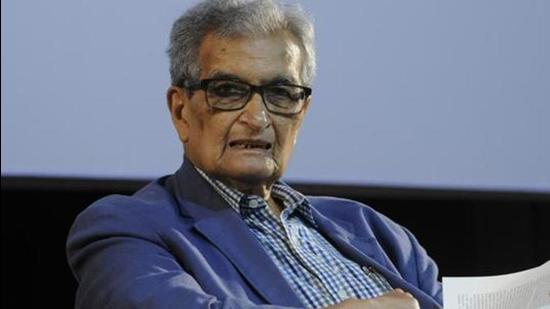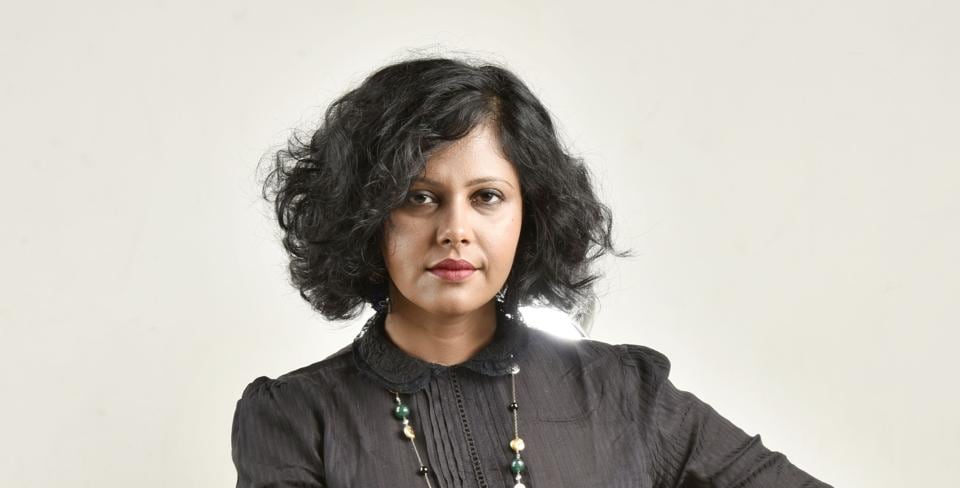Bengal has been committed to secularism in a way that’s remarkable: Amartya Sen
What happens electorally is not just a matter of what preceding justice was in a particular area. It depends so much on the organisational facility, says Amartya Sen
Ahead of the fifth of eight phase assembly elections in West Bengal on Saturday, Nobel laureate Amartya Sen spoke to Sunetra Choudhury about the elections and the issues involved. Edited excerpts from the interview:

How closely have you been following the Bengal elections?
There is a lot of time difference between Kolkata and where I stay right now [Harvard]. So as closely as possible, I do try to follow these elections.
Also watch: Amartya Sen on why BJP’s attracting Dalit and backward voters | On The Record
The elections are largely seen as a battle for Bengal’s soul wherein all the parties are claiming to be representatives of real Bengal. What do you make of this electoral fight?
Well, it’s an extraordinary fight and there can’t be any other occasion when an election in a state has generated so much interest, given the unusual amount of importance that the Central government has given it. On the other hand, it’s not so unusual that the local Bengalis think the elections really are an important thing. The two together have caused a confrontation rare in the history of elections anywhere in the world.
Also Read | ‘Criminal negligence’: Mahua Moitra slams EC over 8-phase WB polls amid Covid-19
Why are Bengal elections associated with violence? The fear of violence was also cited by Election Commission (EC) to have the elections over eight phases...
I don’t think it is because Bengal is more violent. I think the EC wanted it divided and if you see how the election is going, where the Prime Minister goes away and does a little bit of work for his Prime Ministerial role and then comes back in time for another part of the elections. This is something in which the Central government clearly has some ability to participate in every activity in a way that would not have been possible if it were a one-day election or a two-day election. Now, I don’t know whether that was the reason for EC doing it in this form. A lot of people in Bengal are rather critical of the Election Commission, the way law and order situation has gone. Even in the firing [during the fourth phase of polling], four Bengalis, all Muslims were killed. I’m not going into that story. But it is not the case that it’s only the issue of peace in Bengal and the absence of it that makes Bengal prone to having...eight-phase [elections]...rather than for similarly sized places that have it in one or two-day scenario. There’s an element of political reasoning involved in it, and we could discuss that too.
...I don’t know that traditionally Bengal has had more bloodshed in elections. There have been many fights over Bengal over the years if you think of the history of the British Empire. The British Empire was established in Bengal in the Battle of Plassey. There were fights going on between Siraj ud-Daulah, the last King of Bengal, and the British. Then in the Indian national movement, a lot of the violence in trying to get the British out had its roots in Bengal. So, there’s a historical tradition too.
Bengal is divided between Hindus and Muslims that has not been traditionally a big divider. On the contrary, if you go back to the beginning of Bengali culture and literature, in the 10th century, you will see an intermingling of Hindus and Muslims... The main epics, the Ramayana and Mahabharata, the main translating initiative came from the Muslim King in Bengal who was very fond of the epics. There has been a tradition of Hindu-Muslim unity from time to time... The British were quite keen on a division between Hindus and Muslims. It used to be called divide and rule. A certain amount of that going on now if you take a thing like the new citizenship act. That is not popular among Muslims as they don’t have rights that the Hindus are given in this. That generates not only discontent among Muslims but also Hindus who are very strongly involved with the cause of secularism.
After all, Bengal with Rabindranath Tagore and Netaji Subhash Chandra Bose has been committed to secularism in a way that’s quite remarkable... so any violation where only Muslims are shot in a particular incident involving police from outside, or a major party trying to win elections with the party leader saying, “we don’t expect Muslims to vote for us”. Why not? That raises all kinds of questions. So, there are reasons for tension that we have to think about. And these are not necessarily to the detriment of the civilization of Bengal. Secularism has been a very big cause in Bengal. Our most famous poet is Rabindranath Tagore but the next one is Kazi Nazrul Islam. And the magazine in which he used to publish had as its masthead a Bengali poem from the 15th century which said: “Above everything, a human being and there’s nothing above that”. ...secularism is very much on the ground, on the battlefield in these elections.
BJP no doubt uses polarisation, but election strategist Prashant Kishore has acknowledged that TMC and Congress had only tried to appease Muslims and now Hindus wanted to vote for a party that was looking at their interests. Do you agree with this?
It seems like an approximate history. Bengal has been a divided ground for a long time. When the British partitioned it early in the 20th century and wanted a Muslim part separated out, they hoped that there would be support from the Muslims in Bengal to having a part in which their numerical dominance would be acknowledged. What did the Bengalis do? Bengalis, both Hindus, and Muslims, were totally against it. One of the poems about the unity of Bengal “Amar Sonar Bangla” became later the national anthem of Bangladesh. Given that Muslims have been traditionally a lot poorer than Hindus in Bengal, which has been demonstrated by various studies, there is a need for justice in dealing with it, in looking after the poor, in looking after those at the rougher end of the pyramid of justice. This is important as people like Netaji Subhash Chandra Bose always pointed out. It is important to see who the poor in a region are and what can be done to help them. Now some of the concern with Muslims came for the same reason as the concern for Mataus, Namasudra, and the Hindu lower caste or the Hindu-related tribal population of Bengal.
So, I think the whole idea of Muslims having done it, and now it was the time for Hindus to teach them a lesson, is just a part of the propaganda of a party inspired by Hindutva thoughts. And whoever says it is making a mistake because you have to look at people in terms of privilege and under-privilege. Indian government itself has made Muslims underprivileged so if you are being maltreated outside India, you cannot ask for a home in India as Hindus can. In these circumstances, you have to look at a fuller picture.
Also watch | 8 phases not due to violence threat but political: Amartya Sen | On The Record
You spoke about the lower caste communities and the underprivileged, the BJP counts them as their voters. They also voted for them in Uttar Pradesh and in the 2019 general elections. What would explain that?
That’s a very interesting question because what happens electorally is not just a matter of what preceding justice was in a particular area. It depends so much on the organisational facility. One of the interesting things to look at far away from Bengal or UP would be say Kerala. Kerala had more untouchability, more caste division than almost anywhere else in India. And yet, because of ultimate organisation, in this case by the Left, the caste situation changed radically over time. And it was possible for the Communist Party, which ignored these caste divisions, to get support from all the castes. We must not ignore the enormous role that political organisation plays.
Hindutva has been a very dynamic political movement. I may not agree with them, but I certainly admire many of their organisational feats and they were successful not in all the elections. ...As happened in some tribal areas, for example, take Tripura, the tribal population could be captured by BJP... We have to look at these organisational sides. That’s why if you were to ask the question, if Bengal is so secular, how come a Hindu party, whether they win or not, could be counted as a possibility? That’s because of the organisation. I don’t think we have ever seen an election in which we have seen so much attention paid from the Centre. Not only the Prime Minister but the [Union] Home minister [Amit Shah] and CM of the largest state of India [Yogi Adityanath] coming every other day, as it were, but also spending a lot more money. BJP has a lot more money to spend and is making good use of that. So, I think I would tend to look at it that way, that is neither a reason for hopelessness saying there’s nothing we can do. If you believe in your principles including that of secularism and non-divisive justice, you have to work for it. You have to work for it in a way that your own principles resonate better with all the groups, whether they be Muslims or Hindus, Dalits or non-Dalits.
Do you think certain crucial mistakes were made by the state government?
There may well have been, I haven’t studied it in particular. There are also achievements. The Bengali peasants still have a better health condition than the Gujarati peasants, despite being poorer. There are some delivery issues, but distribution has worked quite well and so on. There are mistakes made, for example, the way farmers are treated in India, but that doesn’t mean that the farmers are lost forever to the Central government. They still manage to win elections at the central level. So, it’s not such a simple thing because it’s very easy to point out mistakes but when we are doing political analysis, we have to search for the truth, and we have to have some humility also. What looks immediately like an answer, may not be an answer.
Get Current Updates on India News, Narendra Modi Live Updates, Arvind Kejriwal News Live, Election 2024 along with Latest News and Top Headlines from India and around the world.




